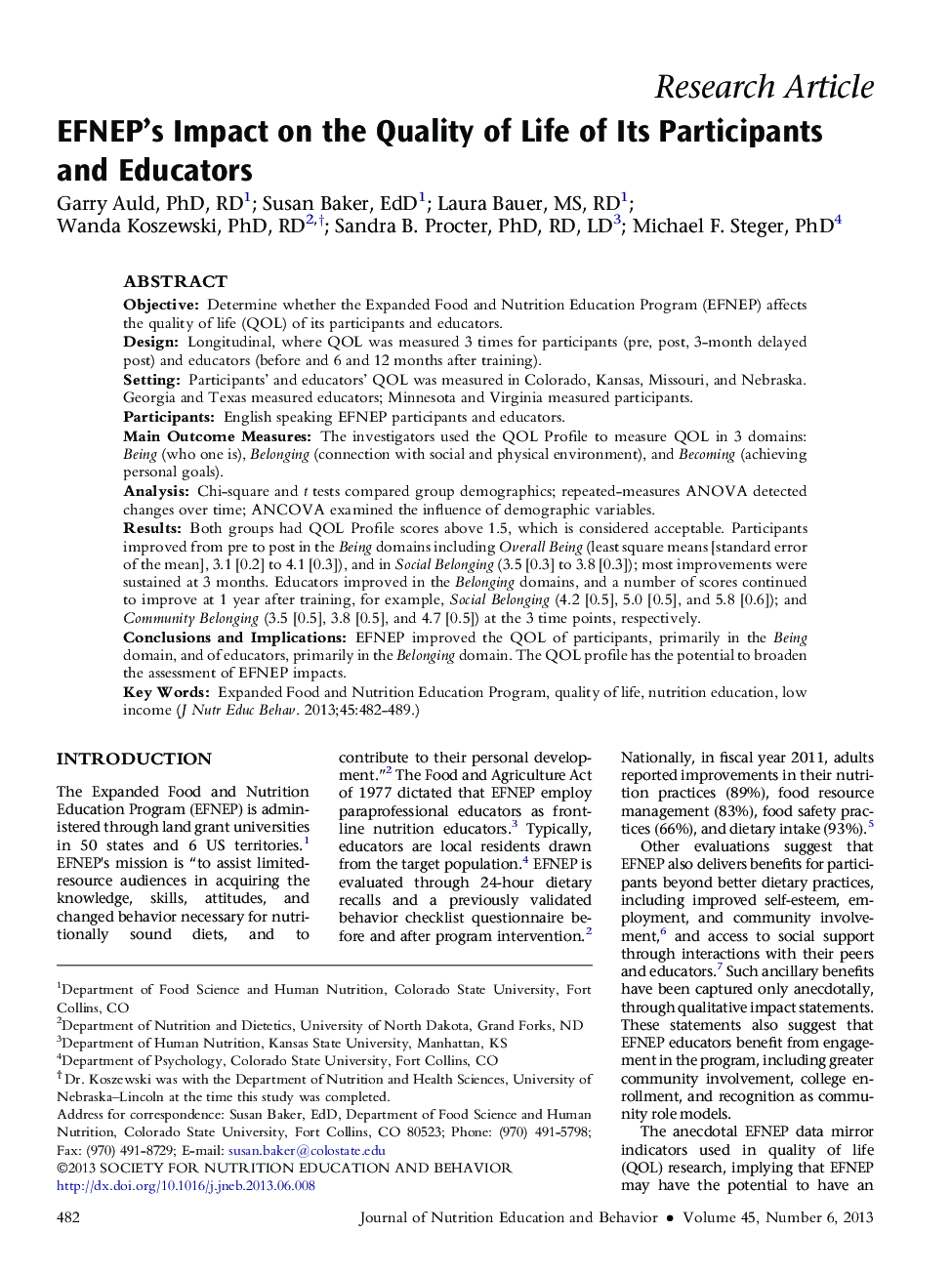| Article ID | Journal | Published Year | Pages | File Type |
|---|---|---|---|---|
| 361991 | Journal of Nutrition Education and Behavior | 2013 | 8 Pages |
ObjectiveDetermine whether the Expanded Food and Nutrition Education Program (EFNEP) affects the quality of life (QOL) of its participants and educators.DesignLongitudinal, where QOL was measured 3 times for participants (pre, post, 3-month delayed post) and educators (before and 6 and 12 months after training).SettingParticipants' and educators' QOL was measured in Colorado, Kansas, Missouri, and Nebraska. Georgia and Texas measured educators; Minnesota and Virginia measured participants.ParticipantsEnglish speaking EFNEP participants and educators.Main Outcome MeasuresThe investigators used the QOL Profile to measure QOL in 3 domains: Being (who one is), Belonging (connection with social and physical environment), and Becoming (achieving personal goals).AnalysisChi-square and t tests compared group demographics; repeated-measures ANOVA detected changes over time; ANCOVA examined the influence of demographic variables.ResultsBoth groups had QOL Profile scores above 1.5, which is considered acceptable. Participants improved from pre to post in the Being domains including Overall Being (least square means [standard error of the mean], 3.1 [0.2] to 4.1 [0.3]), and in Social Belonging (3.5 [0.3] to 3.8 [0.3]); most improvements were sustained at 3 months. Educators improved in the Belonging domains, and a number of scores continued to improve at 1 year after training, for example, Social Belonging (4.2 [0.5], 5.0 [0.5], and 5.8 [0.6]); and Community Belonging (3.5 [0.5], 3.8 [0.5], and 4.7 [0.5]) at the 3 time points, respectively.Conclusions and ImplicationsEFNEP improved the QOL of participants, primarily in the Being domain, and of educators, primarily in the Belonging domain. The QOL profile has the potential to broaden the assessment of EFNEP impacts.
